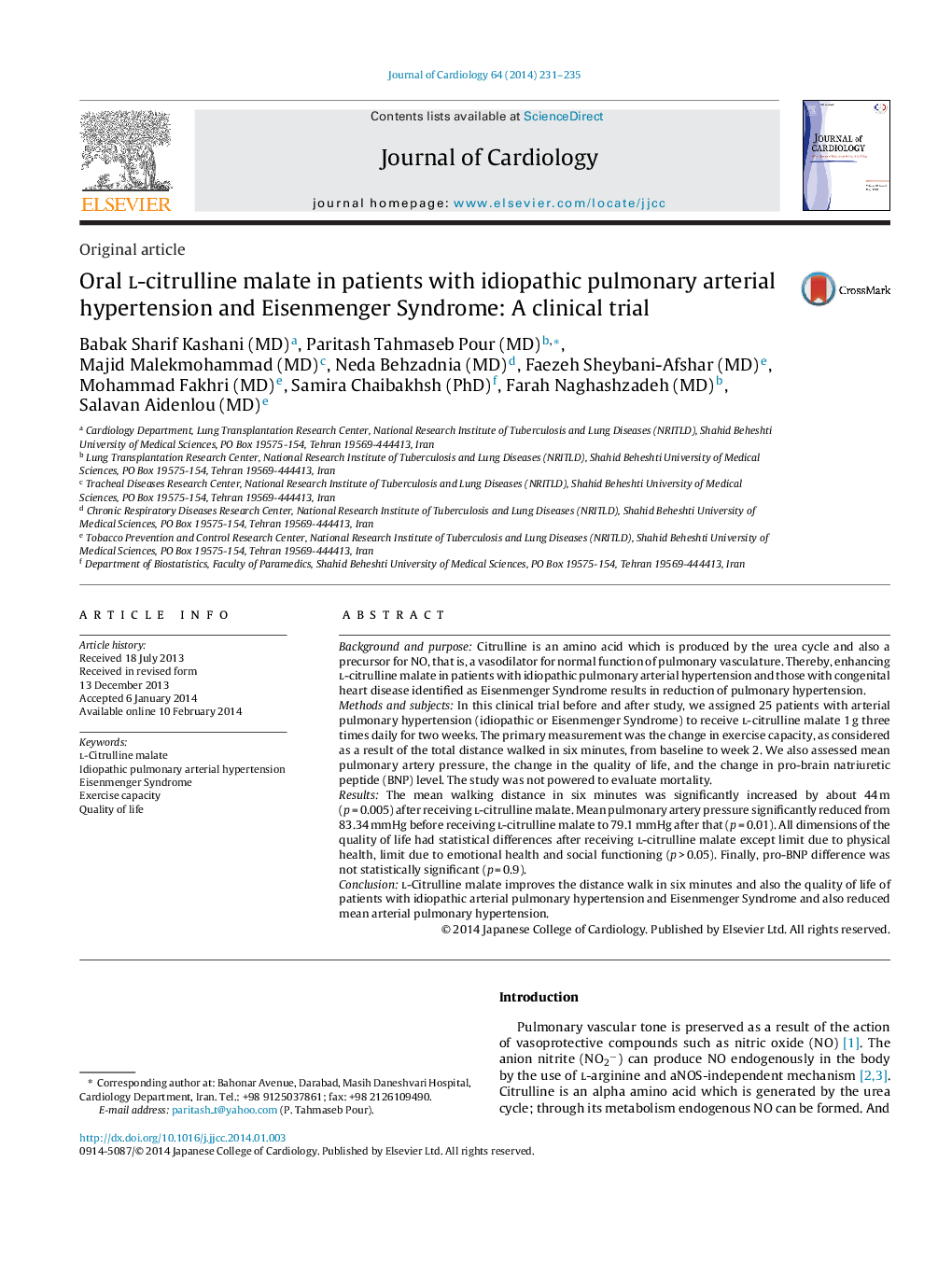| Article ID | Journal | Published Year | Pages | File Type |
|---|---|---|---|---|
| 5984104 | Journal of Cardiology | 2014 | 5 Pages |
Background and purposeCitrulline is an amino acid which is produced by the urea cycle and also a precursor for NO, that is, a vasodilator for normal function of pulmonary vasculature. Thereby, enhancing l-citrulline malate in patients with idiopathic pulmonary arterial hypertension and those with congenital heart disease identified as Eisenmenger Syndrome results in reduction of pulmonary hypertension.Methods and subjectsIn this clinical trial before and after study, we assigned 25 patients with arterial pulmonary hypertension (idiopathic or Eisenmenger Syndrome) to receive l-citrulline malate 1 g three times daily for two weeks. The primary measurement was the change in exercise capacity, as considered as a result of the total distance walked in six minutes, from baseline to week 2. We also assessed mean pulmonary artery pressure, the change in the quality of life, and the change in pro-brain natriuretic peptide (BNP) level. The study was not powered to evaluate mortality.ResultsThe mean walking distance in six minutes was significantly increased by about 44 m (p = 0.005) after receiving l-citrulline malate. Mean pulmonary artery pressure significantly reduced from 83.34 mmHg before receiving l-citrulline malate to 79.1 mmHg after that (p = 0.01). All dimensions of the quality of life had statistical differences after receiving l-citrulline malate except limit due to physical health, limit due to emotional health and social functioning (p > 0.05). Finally, pro-BNP difference was not statistically significant (p = 0.9).Conclusionl-Citrulline malate improves the distance walk in six minutes and also the quality of life of patients with idiopathic arterial pulmonary hypertension and Eisenmenger Syndrome and also reduced mean arterial pulmonary hypertension.
